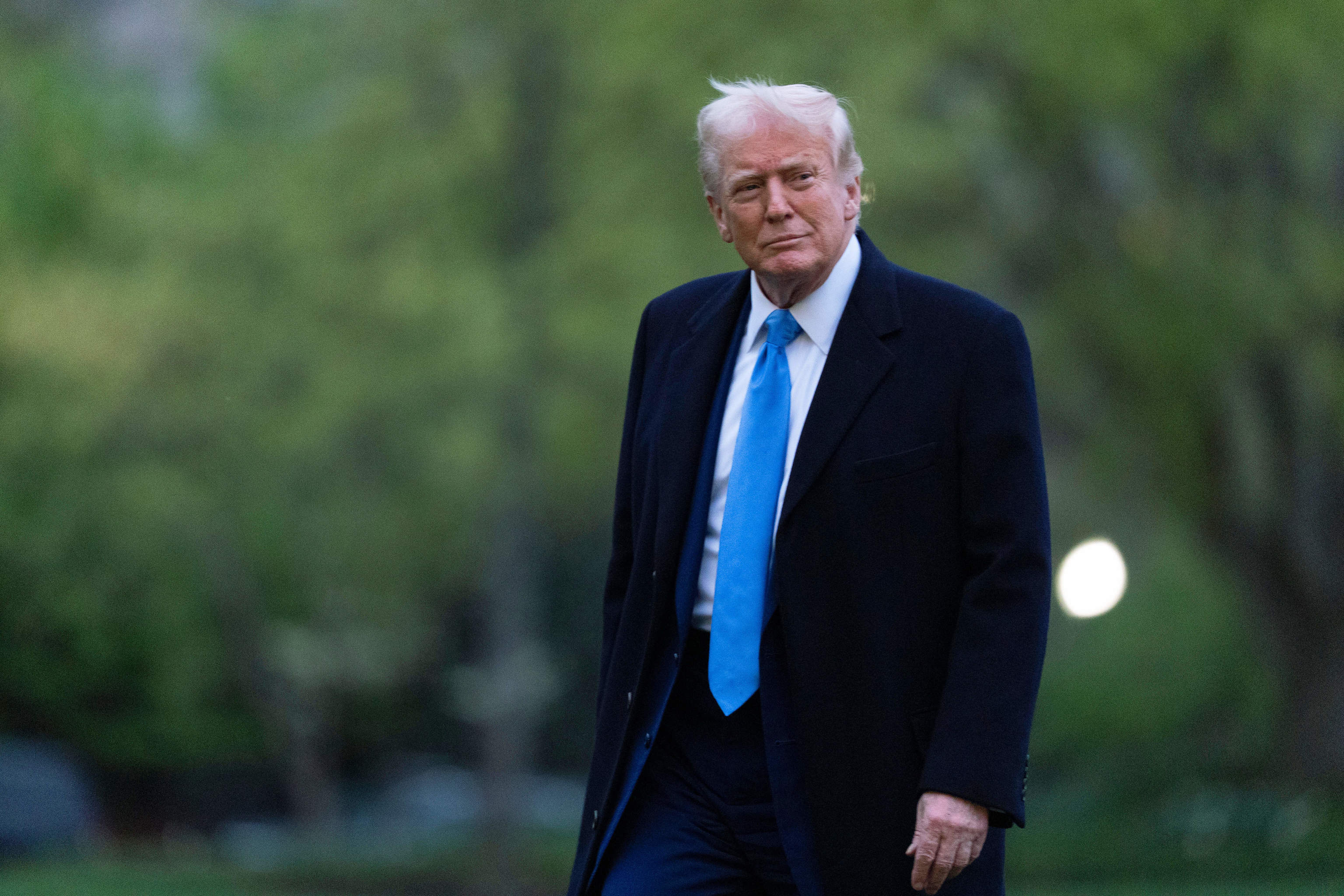Curious policy of Donald Trump: insulting and threatening to invade his allies (Canada, Panama, Denmark...) and now imposing tariffs that hit the wallets of his presumed friends, both within the country -Texas, Oklahoma, North Dakota- and abroad -Russia, Qatar, Saudi Arabia, UAE-. But that's what has happened in this crazy tariff week. The Republican has exempted oil companies from the tariffs, but the collapse of global growth prospects caused by these barriers has sunk the price of oil. Thus, the sheikhs who have invested in the private equity fund Affinity Partners, owned by Trump's son-in-law, Jared Kushner, are furious. In US oil fields, it is assumed that production will not increase in 2025. The drop in sector revenues will also deal a severe blow to Russia, whose energy infrastructure is already affected by the war with Urania, while waiting for Trump to lift the economic sanctions.
Trump doesn't have to worry about popular rejection of his tariffs
Trump's tariffs have considerable support in the US public opinion. The president has a solid electoral base, so his popularity fluctuates, with few exceptions, between 40% and 50%. The initial reaction to the tariffs seems to confirm this thesis. Support for Trump ranges from 37% to 46.3%, with a decline in undecided and independent voters, but not in his base, which follows the motto "trust the plan." This is reflected in the changing perception of Republicans towards two of the US's major allies: Canada, which has been declining since imposing strict Covid-19 controls, and the EU, whose image Trump has undermined in just two months. So when the president talks about imposing tariffs on Canada until the country agrees to be annexed by the US, or imposes widespread barriers on European products, he is reading very well what his core voters want.
US announces aid to alleviate the trade war before launching the offensive
An immutable law of economics is that subsidies follow tariffs. It is counterintuitive because if domestic production is protected, why subsidize it? The answer lies in the barriers that countries affected by tariffs usually launch as retaliation, as we are seeing these days. In fact, before announcing tariffs, the White House began announcing subsidies, when the US Secretary of Agriculture, Brooke Rollins, said they were "ready to launch the programs we created last time," referring to the $23 billion Trump gave to Midwest farmers in 2018 and 2019 when China closed its market to US agricultural production in retaliation for the tariffs imposed by the US. Rollins made these statements in Iowa, the state where the 2028 Republican primaries kick off.
UK considers nationalizing its steel industry (again)
If there is a sector that is a barometer of industrial policy in the West, it is the British steel industry. Nationalized in 1947, privatized in 1952, nationalized again in 1967, and privatized once more in 1988 under the name British Steel, it may now be nationalized again. The Labour government of Keir Starmer wants to protect steel jobs, which have a strong Labour union presence, but the real reason is geo-economic: British Steel wants to close its blast furnaces, making the UK the only G-7 country without such steel production systems. This possibility, which would not have mattered to anyone in London years ago, now sends shivers, especially after Covid-19, Ukraine, and now Donald Trump's tariff frenzy. The paradox is that British Steel is already state-owned, but by the Chinese state, as it is owned by the Chinese public company Jingye.
Major US companies truly fear their president
The prevailing idea is that major US companies control the country. And no one has served those companies' interests better than Donald Trump. However, recent events seem to contradict this. On one hand, a survey by the Federal Reserve Bank of Dallas in Texas shows that domestic oil companies, who overwhelmingly supported Trump, are furious with him for the rise in steel and aluminum prices needed to build their wells, due to the tariffs imposed by the president. This is now compounded by major retail companies, including giants like Target and BestBuy, who have refrained from taking the latest wave of tariff increases by the Republican leader to court out of fear of retaliation from the White House tenant. Trump, who has already tamed major law firms and universities, has thus become the most powerful president in US history.
Russia on a 'roadshow' in Namibia to increase its control of African uranium
Until now, Russia's political-economic-military presence was mainly in the Sahel countries, primarily in the Central African Republic and the Niger-Togo-Burkina Faso triangle. Moscow not only gained influence but also control over oil fields and, in the case of Niger, uranium, a mineral in which Moscow already plays a dominant role globally. Now, Putin's government has extended its diplomatic courtship to Namibia, Africa's leading uranium producer. The decision of both countries to explore a closer relationship comes just as numerous African states show discontent with the US - and to a lesser extent with the UK - due to Donald Trump's dismantling of the US Agency for International Development (USAID), which significantly contributed to balancing the budgets of some countries.
